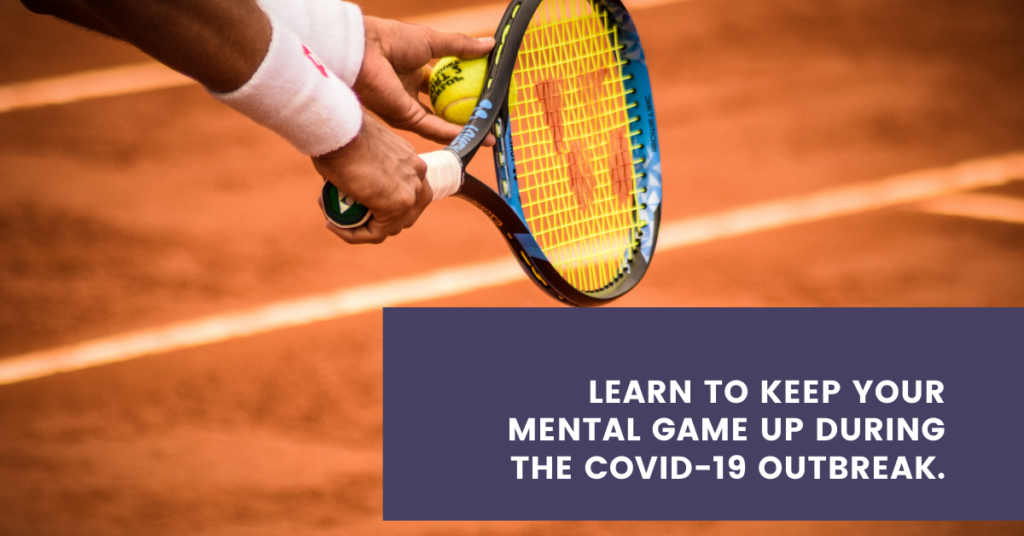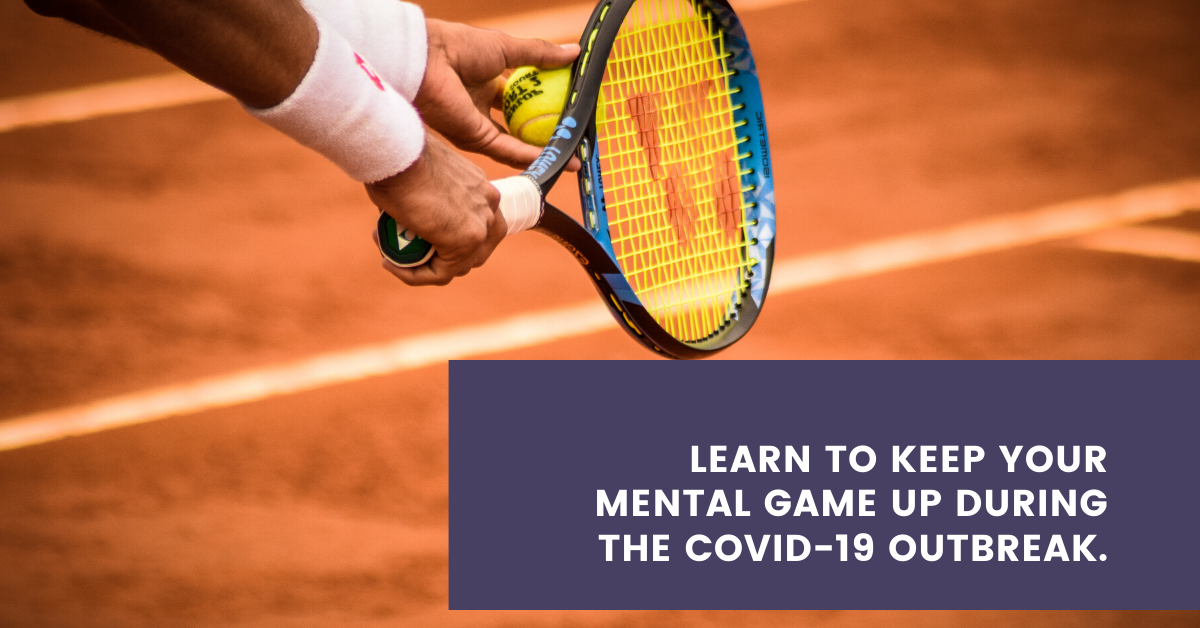
Everyone in the world is talking about the COVID-19 pandemic: what it does to you, how many people are affected, how many people have died and the list goes on.
The news is reporting the same, people are talking about the same and the same is replaying in your head again and again.
A lot of people will be experiencing “What Ifs?”-What if someone I know gets it? What if I get it? Such thoughts create PANIC, that causes a person to live in fear and worry.
In the case of sports, the biggest news that affected elite athletes is the postponement of the Olympics to 2021. The priority here is: safety and health of athletes and their team. Many athletes have been facing a lot of other stressors due to the unpredictable nature of this pandemic. The schedules of athletes, be it grass-root level or international level, have been affected badly. More than the concern of getting affected by the virus, the major concerns showed by the athletes are related to their performance. The main areas of concern for athletes are :
- No usual practice
- Upset competitive schedule
- Fear of falling back in their performance
- Frustration due to inactivity/ less activity
- Fear of the unknown
This has put a lot of pressure on coaches and associations to develop some activity to keep the players engaged. Virtual meetings, lectures etc are organised by many associations all around the world so that the players remain active and motivated. Acceptance of the situation is the first step. Understand, all athletes and coaches across the world are going through this, you are not alone.
As athletes, you need to remember these unexpected events like the pandemic are a part of your life right now. You need to take it in your stride and accept it as a part of the process. Here are a few things that can be done to keep your mental strength levels in check:
Follow a routine: Every athlete around the world has a disrupted routine right now. You need to develop your own routine that will be aiming to hit your goals, as closely as possible. Wake up at the same time as you used to wake up. Aim to do everything you did at home on a normal day. Eat as per plan. Focus on your physical fitness as always.
Rework your goals: Do not be unreal in your goals. Focus on what is in your control right now. If it is developing a better fitness regime – focus on that. If it is paying attention to what you eat, focus on that. Do not keep practice goals at the moment. Take this time to work on what you can.
Pay attention to mental training NOW! You have the time and energy. Start writing your diary. Keep an intention to develop a meditation routine or a breathing exercise in your day.
Visualise your practice skills, areas you need to improve and areas of your strength. Develop your self-belief by writing these strengths and visualisation scripts in your diary. Start utilising your time to strengthen your mental skills.
Develop new hobbies:
As a sportsperson, you need to step out of your ‘sports’ and also do something else in your daily life. Make a list of what you feel like doing besides sports.
It could be reading a book, watching a movie, painting, learning a new language or playing a musical instrument. Set up 1-2 hours of the day only for your hobby.
Keep in touch with your coach and teammates: You should talk to your coach every day. Take tips and strategies to workout your routine from him/her BASED ON AVAILABLE RESOURCES.
Talk to him/her about your fitness and nutrition as well as visualisation. Make sure you also communicate with your teammates (if in a team sport). This is also a good time to build a social rapport which is very essential for the development of a cohesive unit.
Now plan all this in a weekly planner, make a timetable and stick it on your door / wall. Share this with your coach and parents, involve them in some way by asking some advice or tips on how to maintain this schedule to the T.
Lastly, make sure you are doing all this in the best of your spirit. Remember, every athlete is in the same position as you are.
The KEY is to make the most of your time in hand to become a strong athlete and also, very important, a mentally healthy person.
– Varadayini Gorhe, Sport Psychologist, Mind Your Fitness!





